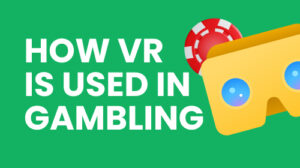What Are the Risks of Gambling?
Whether you enjoy slot games, classic table games, scratch cards, live casino games, sports betting, bingo, or crash games, you’re likely aware that these activities are fun and intense, with substantial prizes often up for grabs. However, it’s crucial to remember that all gambling activities come with significant risks. Choosing to play only at verified online casinos can reduce some of these dangers, since such platforms are licensed, audited, and committed to fair play.
Keeping this in mind helps you maintain control and avoid negative consequences. The excitement of gambling can impact your finances, mental health, and subconscious, triggering chemical reactions in the brain that may cause long-term harm. This article aims to provide tools to help you stay in control and minimize risks.
Financial Risks
The most obvious risk of gambling is losing money. Losses are an inherent part of gambling, so it’s vital to avoid betting more than you can afford to lose. All gambling activities operate with a built-in advantage for the operator, ensuring that casinos make a profit over time. While occasional wins and losses occur, most players end up with a net loss.
Paying for entertainment isn’t inherently wrong, but if you let the excitement take over, it’s easy to make harmful decisions. Many players fall into the trap of “chasing losses,” trying to recover lost money by placing bigger bets or playing faster. This creates a vicious cycle, which can be avoided by setting a strict budget before you start gambling.
Mental and Emotional Risks
Gambling can also pose risks to your mental health, often linked to financial issues. Losing more money than planned can lead to frustration and create a downward spiral. Winning may provide brief moments of joy through dopamine release, but losses are often ignored as the hope of a big win lingers.
The problem is that even a significant win rarely satisfies, as the craving for dopamine leads to further bets until even large payouts are gone. This cycle can result in long-term feelings of despair and dissatisfaction, as players try unsuccessfully to recreate their initial thrill.
Social Consequences
Gambling addiction, like substance addiction, can lead to social isolation. Those struggling often distance themselves from friends and family while prioritizing gambling. Borrowing money from loved ones, irritability, and avoiding concerned individuals can result in damaged relationships.
In severe cases, gamblers may end up completely isolated, with no activities outside of gambling to fill their time. Breaking this cycle is challenging without external intervention, often requiring others to step in and offer help, even against the gambler’s wishes.
Prevention and Support
Fortunately, many organizations provide support for individuals struggling with gambling-related issues. International organizations and local support groups across Canada also provide resources and treatment.
Taking the first step toward seeking help is often the hardest, but it’s essential for recovery. Early intervention makes it easier to escape harmful patterns. Gambling addiction is recognized as a medical condition, and support is available for psychological treatment and financial stability.
Staying Safe
Gambling should always be viewed as entertainment. If it stops feeling enjoyable, it’s time to take a break. Use tools like deposit limits from trusted online casinos to help you stay within budget. These measures can significantly reduce risks and prevent harmful consequences.
Many operators actively monitor gambling behaviour and may reach out if they notice concerning patterns. It’s wise to listen to their advice, assess your habits, and adjust accordingly.
Lastly, don’t dismiss comments from friends or family, as they are often the first to notice changes. They can provide valuable support if you ask for help.
Gambling can be enjoyable until it’s no longer fun. Stay safe by addressing risks early, rather than dealing with the consequences later. If you want to learn how to vet brand‑new sites, check out our guide about safety of new online casinos.


















